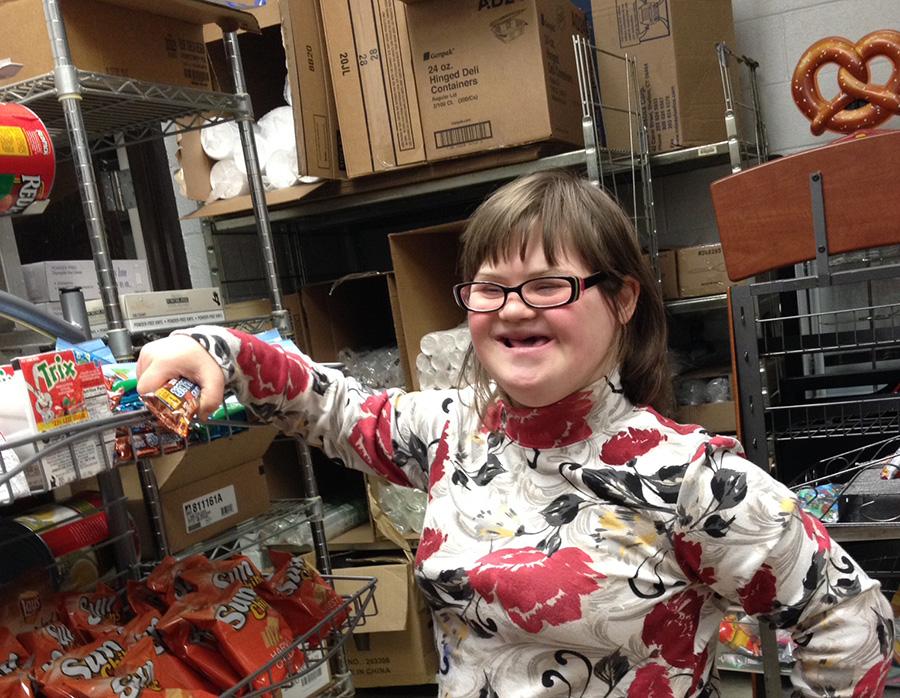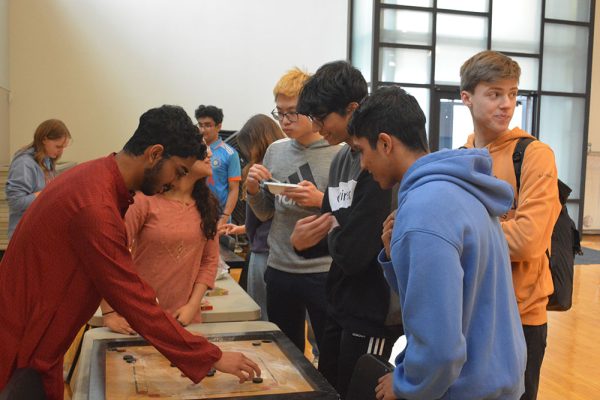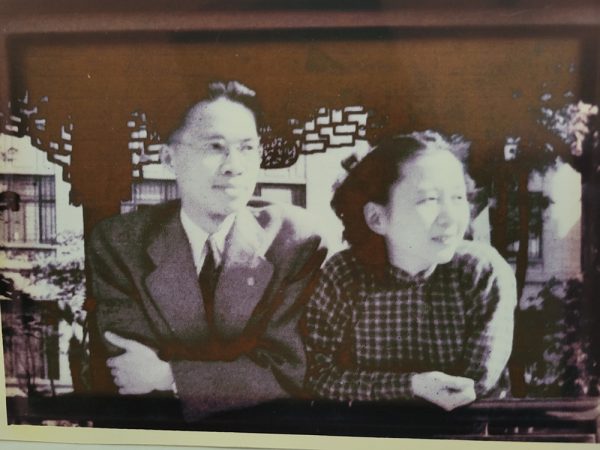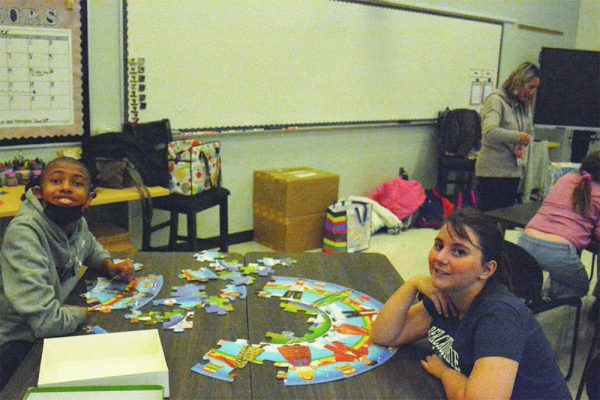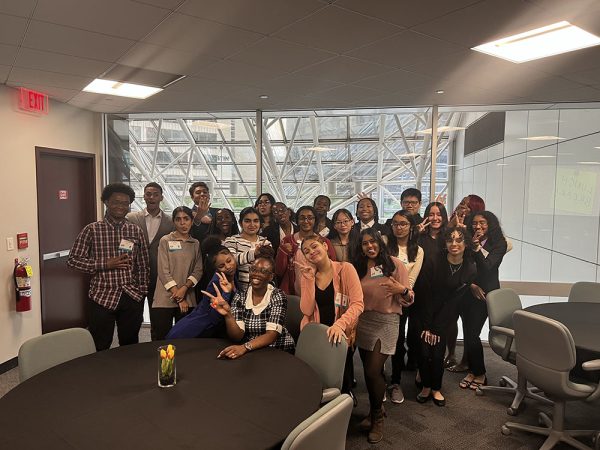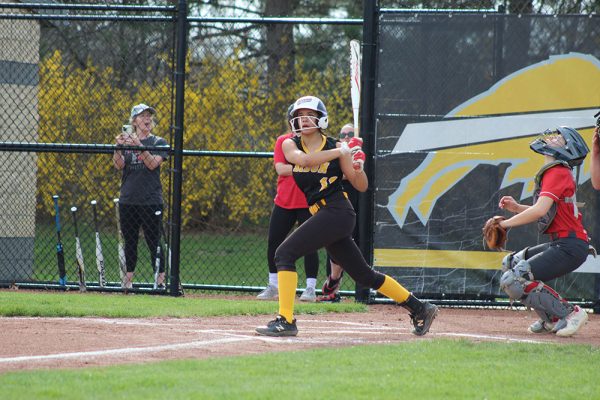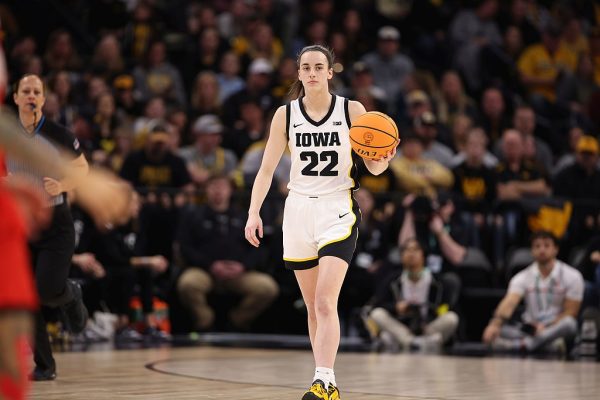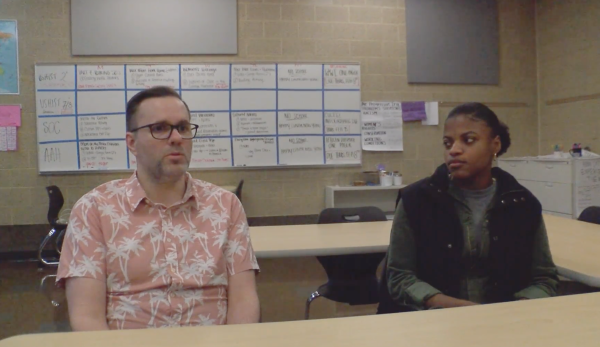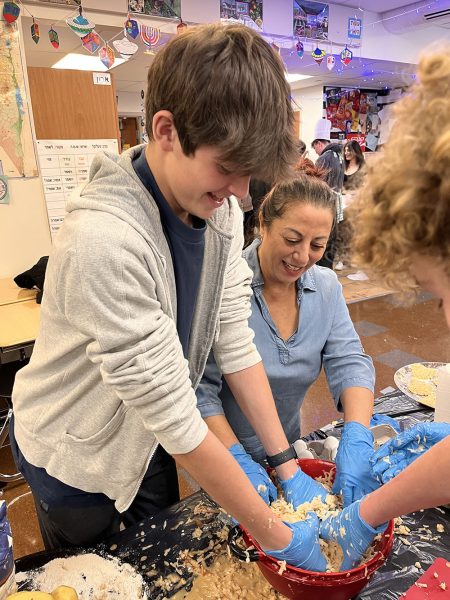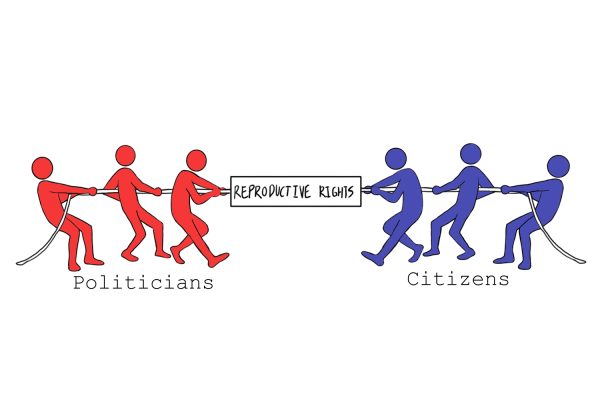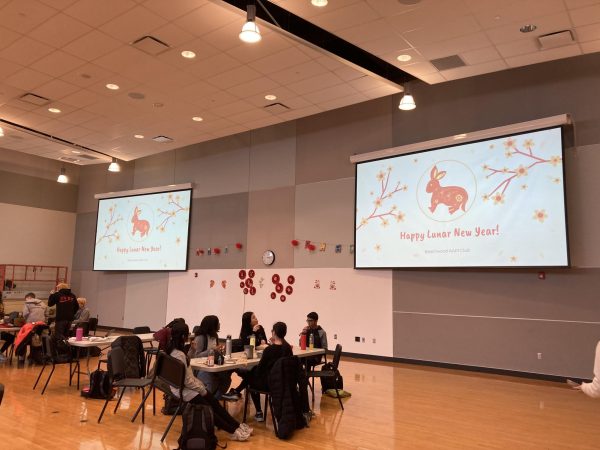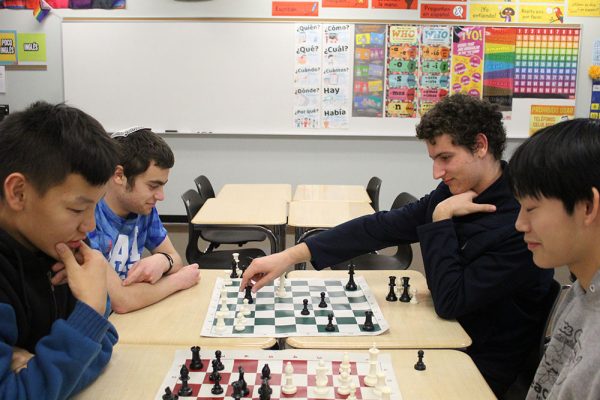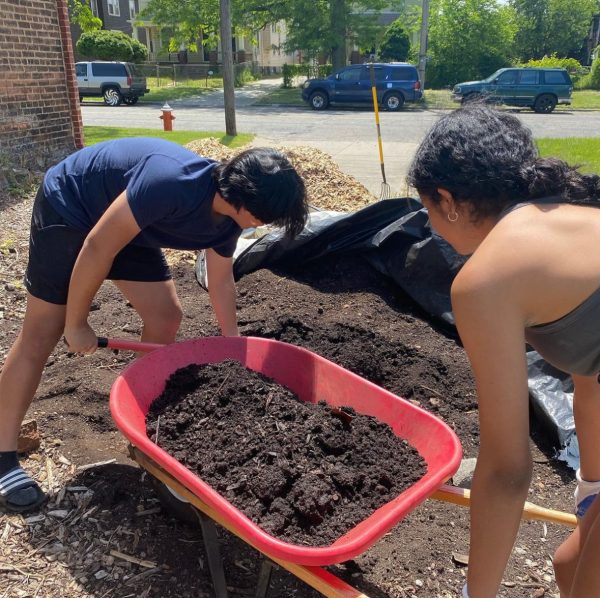Meet Bracha Goldstein: Greeter at the Bistro
It’s 11:30 on a Thursday morning. As BHS students scramble to put away lunch trays and make it to 7/8th period, junior Bracha Goldstein is clear, deliberate and focused. She has a job to do.
Bracha works as a greeter at the Beachwood Bistro Thursdays and Fridays, welcoming guests and thanking customers as they leave. Bracha also has a job in the cafeteria, wrapping cookies, assembling fruit cups and stocking snack shelves.
Under the Individuals with Disabilities Education Act, disabled students like Bracha must receive vocational training as part of their education. The objective is for these students to be able to contribute to the workforce after they graduate. Bracha is there to learn, but she simultaneously inspires all those who interact with her.
Bracha’s job as greeter was no accident.
“It works well with her skill set. She’s very social. She loves talking to people,” said intervention specialist Nina Falkenstein, who teaches Bracha on a daily basis. “If you’re having a bad day, she lights up the room with her smile and her energy.”
Culinary arts assistant Pat Stoltz, who teaches students in the Excel Tecc program and works in the Bistro, noticed Bracha’s outgoing traits.
“She’s enthusiastic and puts a smile on her face, which makes our customers walk in with smiles,” she said. Stoltz added that Bracha is always eager to inquire into the lives of those she works with.
“When someone has a deficit, they usually compensate in another way. [I’ve] heard of people who can’t see but they hear really well,” said Rivka Goldstein, Bracha’s mother. “… One area Bracha has compensated in is social skills, showing love to her family and others.”
Placement in the Bistro also gives Bracha a chance to work on skills she will need to hold down a job.
“We’re building her soft skills and the skills she will need to be employed outside of the [high school],” Falkenstein said.
While Bracha’s sociability is a strength, her teachers work with her to make sure she is prepared for the workplace environment.
“Someone [without a disability] would know how to read social cues,” Falkenstein said. “Bracha works on appropriate work behavior such as when it is appropriate to talk to coworkers and when it is time to focus on the work task.”
“Every once in a while [I have to remind her] ‘Talk slower,’ or ‘Don’t lean against the wall,’ or ‘Was that an appropriate question that you asked?,’” special education assistant Deborah Mate said. “She just wants to make conversation and she enjoys it, but sometimes she has to be directed.”
While Bracha has room to grow, she has already made improvements in her professionalism.
“She used to say ‘Happy birthday’ to everyone who walked into the room whether it was their birthday or not,” Falkenstein said. “She no longer says that.”
“She has been practicing asking questions of her friends and teachers so that she can maintain a meaningful conversation in the classroom,” Falkenstein added. “She has generalized this skill at work”
Bracha does face some difficulties on the job, yet these do not diminish her enjoyment of her work.
“When she says, ‘Welcome to the Bistro’ and someone says ‘Thank you,’ she gets a big smile because she knows she’s connected with that person and done a good job,” Mate said.
Bracha described talking to people as her favorite part of the job. She said she especially enjoys asking people about their families.
“Although her skills may be more limited than what a regular 17-year-old might be doing, she does it with a smile and she’s very proud of what she’s contributing,” Rivka Goldstien said.
The skills Bracha employs at work, like sociability and responsibility, are also carried out in other realms of her life.
Bracha said she enjoys helping her mother with chores, which include loading the two dishwashers to keep Kosher for her Orthodox family of ten children. “She’s responsible. Because of the disability, she’s very concrete, but it’s also a strength of hers. Whatever her job, she does it. She’s proud to have jobs,” Rivka Goldstein said.
Falkenstein noted that Bracha rarely complains when given schoolwork.
Bracha also applies her enthusiasm to her faith. “She goes to synagogue. She likes to pray,” Ms. Goldstein said. “She can’t really read Hebrew yet, but she pulls out her prayer book even at home.”
Rivka Goldstein expressed her gratitude for the opportunities Beachwood has provided Bracha, and she hopes the student body could also learn from her daughter.
“Even though [BHS students] are very college and very goal-focused, [they should] be exposed to this population to realize that not everybody is Ivy League material,” she said. “And it’s wonderful that the school would build Bracha up and give her a job where she feels she’s really contributing.”



